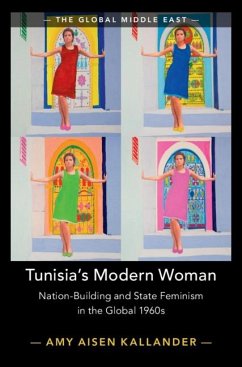Claims over women's liberation vocalized by Tunisia's first president, Habib Bourguiba began with legal reforms related to family law in 1956. In this book, Amy Aisen Kallander uses this political appropriation of women's rights to look at the importance of women to post-colonial state-building projects in Tunisia and how this relates to other state-feminist projects across the Middle East and during the Cold War. Here we see how the notion of modern womanhood was central to a range of issues from economic development (via family planning) to intellectual life and the growth of Tunisian academia. Looking at political discourse, the women's press, fashion, and ideas about love, the book traces how this concept was reformulated by women through transnational feminist organizing and in the press in ways that proposed alternatives to the dominant constructions of state feminism.
Dieser Download kann aus rechtlichen Gründen nur mit Rechnungsadresse in A, B, BG, CY, CZ, D, DK, EW, E, FIN, F, GR, HR, H, IRL, I, LT, L, LR, M, NL, PL, P, R, S, SLO, SK ausgeliefert werden.









